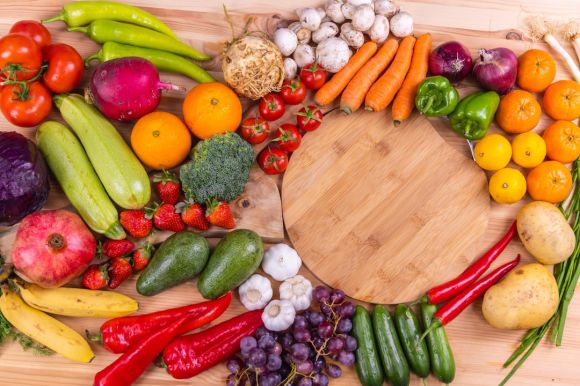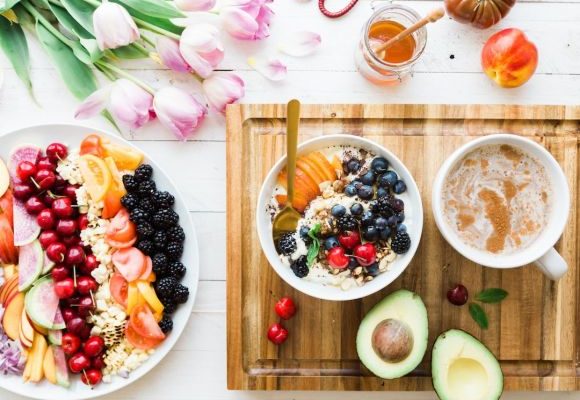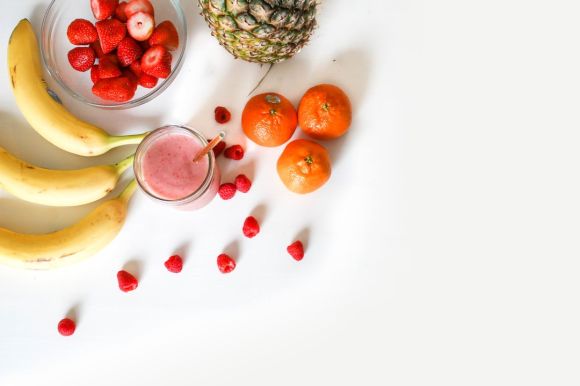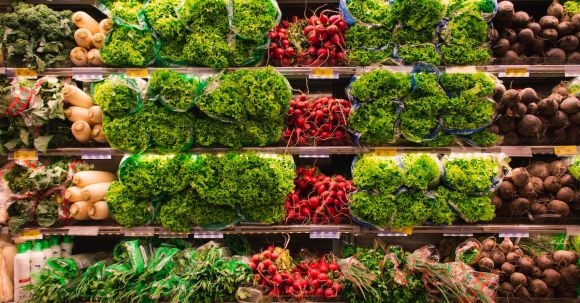Fueling your body with the right nutrients before and after a workout is essential for maximizing your performance and aiding in recovery. The food you choose to consume can have a significant impact on your energy levels, muscle growth, and overall fitness progress. In this article, we will explore the best options for pre and post-workout meals to help you get the most out of your exercise routine.
Nutrition and meal planning
Sugar, a common ingredient found in many of our favorite foods and beverages, has become a significant concern in terms of its impact on our health. While it may add a delightful sweetness to our taste buds, the excessive consumption of sugar has been linked to various health issues, ranging from obesity to heart disease. In this article, we will explore the detrimental effects of sugar on our overall health and well-being.
The Sugar Trap
One of the main reasons why sugar is so addictive is its ability to trigger the brain's reward center. When we consume sugar, our brains release dopamine, a neurotransmitter associated with pleasure and reward. This dopamine release creates a feeling of euphoria and prompts us to seek out more sugar. Unfortunately, this cycle can lead to a sugar addiction, making it difficult to resist sugary treats.Weight Gain and Obesity
Excessive sugar consumption is strongly associated with weight gain and obesity. When we consume sugary foods and beverages, our bodies convert the sugar into glucose, which then enters our bloodstream. Insulin, a hormone produced by the pancreas, is responsible for regulating our blood sugar levels. However, when we consume too much sugar, our bodies struggle to produce enough insulin to keep up, leading to elevated blood sugar levels. This excess sugar is then converted into fat, resulting in weight gain.Increased Risk of Chronic Diseases
Consuming excessive amounts of sugar has been linked to an increased risk of chronic diseases such as type 2 diabetes, heart disease, and certain types of cancer. High sugar intake can lead to insulin resistance, a condition in which cells become less responsive to the effects of insulin. This can eventually lead to the development of type 2 diabetes. Additionally, a diet high in sugar has been shown to increase the risk of heart disease by raising blood pressure, promoting inflammation, and contributing to unhealthy cholesterol levels.Negative Impact on Dental Health
Sugar is a primary contributor to tooth decay and cavities. When we consume sugary foods and beverages, the bacteria in our mouths feed on the sugar and produce acids. These acids erode the enamel on our teeth, leading to cavities and tooth decay. Over time, this can result in the need for extensive dental work and can negatively impact our overall oral health.Reduced Energy Levels
While sugar may provide a temporary energy boost, it ultimately leads to a crash in energy levels. Consuming high amounts of sugar causes a rapid spike in blood sugar levels, followed by a sharp drop. This rollercoaster effect can leave us feeling tired, sluggish, and lacking in energy. Additionally, excessive sugar consumption has been linked to poor sleep quality, further exacerbating feelings of fatigue.The Key to a Healthy Lifestyle
Reducing our sugar intake is crucial for maintaining good health. By making conscious choices to limit our consumption of sugary foods and beverages, we can significantly reduce the negative impact sugar has on our bodies. Opting for whole, unprocessed foods and choosing natural sweeteners such as fruit can help satisfy our sweet cravings in a healthier way. In conclusion, the impact of sugar on our health is undeniable. From weight gain and obesity to an increased risk of chronic diseases, excessive sugar consumption can have severe consequences. By being mindful of our sugar intake and making healthier choices, we can take control of our well-being and pave the way for a healthier lifestyle.
Maintaining a healthy diet can sometimes be challenging, especially when faced with tempting treats and busy schedules. However, with dedication and a few helpful strategies, you can stay on track with your diet goals and achieve the results you desire. In this article, we will explore effective ways to stay focused and motivated on your journey towards a healthier lifestyle.
Set Clear and Realistic Goals
The first step in staying on track with your diet goals is to set clear and realistic objectives. Rather than aiming for drastic changes overnight, start by setting small, attainable goals that you can gradually work towards. For example, instead of completely cutting out sweets, you can aim to reduce your sugar intake by a certain percentage each week. By setting achievable goals, you will feel a sense of accomplishment, which will motivate you to continue making progress.Plan Your Meals and Snacks
One of the most effective ways to stay on track with your diet goals is to plan your meals and snacks in advance. By taking the time to prepare and pack your meals, you are less likely to make impulsive and unhealthy choices when hunger strikes. Additionally, having healthy snacks readily available can prevent you from reaching for convenient, but calorie-laden alternatives. Consider creating a weekly meal plan and grocery list to ensure you have nutritious options on hand at all times.Practice Mindful Eating
Mindful eating is an essential practice when it comes to staying on track with your diet goals. Instead of mindlessly devouring your meals, take the time to savor and appreciate each bite. Pay attention to your body's hunger and fullness cues and stop eating when you feel satisfied, rather than when your plate is empty. By being present and mindful while eating, you can better tune into your body's needs and make healthier choices.Stay Hydrated
Staying hydrated is crucial for overall health and can also aid in weight management. Often, we mistake thirst for hunger and end up consuming unnecessary calories. By drinking an adequate amount of water throughout the day, you can curb cravings and prevent overeating. Aim to drink at least eight glasses of water daily, and consider carrying a reusable water bottle with you to stay hydrated on the go.Find Healthy Alternatives
Another way to stay on track with your diet goals is to find healthier alternatives for your favorite indulgences. Craving something sweet? Opt for a piece of fruit or a naturally sweetened snack. Want something crunchy? Choose baked kale chips or air-popped popcorn instead of greasy potato chips. By experimenting with nutritious alternatives, you can satisfy your cravings while still nourishing your body.Seek Support and Accountability
Staying motivated on your diet journey can be challenging, but seeking support and accountability can make a world of difference. Consider partnering with a friend or family member who shares similar goals, and hold each other accountable. You can also join online communities or support groups where you can connect with like-minded individuals who can offer encouragement and advice.Reward Yourself
Lastly, remember to reward yourself along the way. Celebrate your achievements, no matter how small, and treat yourself to something you enjoy. However, be mindful of your choices and opt for non-food rewards whenever possible. Consider treating yourself to a relaxing spa day, buying a new outfit, or indulging in a hobby you love. By rewarding yourself, you reinforce positive behavior and stay motivated to continue making progress. In conclusion, staying on track with your diet goals requires dedication and a few helpful strategies. By setting clear and realistic goals, planning your meals and snacks, practicing mindful eating, staying hydrated, finding healthy alternatives, seeking support, and rewarding yourself, you can maintain a healthy diet and achieve your desired results. Remember, consistency is key, and every small step towards a healthier lifestyle is a step in the right direction.
Choosing a dietary lifestyle can be a challenging decision, especially with the abundance of options available today. Two popular choices that often come up in the conversation are veganism and vegetarianism. Both diets are known for their focus on plant-based foods, but they differ in their approach to animal products. In this article, we will explore the key differences between vegan and vegetarian diets, as well as the factors to consider when deciding which one is right for you.
Understanding Veganism and Vegetarianism
Before delving into the differences, let's define what veganism and vegetarianism entail. Veganism is a dietary lifestyle that excludes all animal products, including meat, poultry, fish, dairy, eggs, and even honey. Vegans primarily rely on plant-based foods such as fruits, vegetables, legumes, grains, nuts, and seeds. In addition to dietary choices, veganism extends beyond food to exclude other animal-derived products like leather, fur, and cosmetics tested on animals. On the other hand, vegetarianism is a dietary lifestyle that eliminates meat and fish but includes animal by-products like dairy, eggs, and honey. There are different types of vegetarians, ranging from lacto-ovo vegetarians (who consume dairy and eggs) to lacto-vegetarians (who consume dairy but not eggs) and ovo-vegetarians (who consume eggs but not dairy). Some vegetarians may also choose to avoid certain animal by-products, like gelatin or rennet.Nutritional Considerations
When deciding between veganism and vegetarianism, it's important to consider the nutritional aspects of each diet. Vegan diets tend to be rich in fiber, vitamins, minerals, and antioxidants due to the emphasis on whole plant-based foods. However, vegans need to be mindful of potential nutrient deficiencies, especially in vitamin B12, iron, calcium, and omega-3 fatty acids. These nutrients can be obtained through fortified foods or supplements. On the other hand, vegetarian diets that include dairy and eggs can provide adequate amounts of most essential nutrients. Dairy products are a good source of calcium and vitamin D, while eggs are rich in protein and essential vitamins. However, vegetarians should still pay attention to their intake of iron, vitamin B12, and omega-3 fatty acids, as these nutrients are more commonly found in animal-based foods.Ethical and Environmental Considerations
For many individuals, the decision to adopt a vegan or vegetarian lifestyle goes beyond personal health and extends to ethical and environmental concerns. Veganism is often motivated by a desire to reduce animal suffering and exploitation. By eliminating all animal products, vegans aim to promote a more compassionate world for animals. Additionally, vegan diets have a lower carbon footprint since animal agriculture is a significant contributor to greenhouse gas emissions. Vegetarianism, while still promoting a reduction in animal consumption, may be driven by different ethical considerations. Some vegetarians choose this lifestyle for health reasons, religious beliefs, or a desire to support more sustainable agricultural practices. By excluding meat but still consuming animal by-products, vegetarians can make a positive impact while maintaining a more flexible approach.Finding Your Ideal Dietary Lifestyle
Deciding between veganism and vegetarianism ultimately depends on your personal values, health needs, and lifestyle preferences. Consider the following factors when making your decision: 1. Ethics: Reflect on your beliefs regarding animal rights and the exploitation of animals. If you feel strongly about eliminating all animal products, veganism may align better with your values. 2. Nutritional Needs: Assess your current nutrient intake and any potential deficiencies. If you are concerned about meeting certain nutrient requirements without consuming animal by-products, a vegetarian diet that includes dairy and/or eggs may be more suitable. 3. Sustainability: Take into account the environmental impact of your dietary choices. If reducing your carbon footprint and minimizing the exploitation of natural resources are important to you, veganism may be the way to go. Ultimately, the choice between veganism and vegetarianism is a personal one. It's essential to listen to your body, consult with a healthcare professional or registered dietitian, and make a decision that aligns with your values and supports your overall well-being. In conclusion, both veganism and vegetarianism offer viable dietary options for those looking to adopt a plant-based lifestyle. By understanding the differences between these two diets and considering your personal values and health needs, you can make an informed decision about which one is right for you. Whether you choose to go vegan or vegetarian, both choices contribute to a more sustainable and compassionate world.
In today's fast-paced world, finding time to plan and prepare meals can be a challenge. However, taking the time to create a meal plan can have numerous benefits for both your physical and mental well-being. By incorporating this simple practice into your routine, you can save time, improve your health, and reduce stress. Let's explore the many advantages of meal planning.
Save Time and Money
One of the most significant benefits of meal planning is the time and money it can save you. By having a plan in place, you can avoid last-minute trips to the grocery store and impulse purchases. With a clear list of ingredients, you will be able to shop more efficiently and stay within your budget. Additionally, by prepping meals in advance, you can eliminate the need for daily cooking and reduce the time spent in the kitchen.Promote Healthy Eating
Meal planning allows you to take control of your nutrition and make healthier choices. When you plan your meals in advance, you have time to consider the nutritional value of each dish and ensure a balanced diet. You can incorporate more fruits, vegetables, whole grains, and lean proteins into your meals, while reducing the intake of processed foods and unhealthy fats. By consistently eating well-balanced meals, you can improve your overall health and well-being.Reduce Food Waste
Another advantage of meal planning is its ability to reduce food waste. When you plan your meals, you can create a shopping list based on the ingredients you need, eliminating unnecessary purchases. By using up all the ingredients you buy, you can minimize the amount of food that goes to waste. Additionally, you can plan meals that use similar ingredients, allowing you to use up leftovers effectively. By reducing food waste, you not only save money but also contribute to a more sustainable environment.Increase Variety and Experimentation
Meal planning can also help you expand your culinary horizons and experiment with new recipes. When you have a plan in place, you can incorporate a variety of dishes into your meals, ensuring you don't get stuck in a food rut. You can try new cuisines, ingredients, and cooking techniques, making mealtimes more exciting and enjoyable. By exploring different flavors and recipes, you can discover new favorites and expand your cooking skills.Reduce Stress and Improve Mental Well-being
Finally, meal planning can significantly reduce stress and improve your mental well-being. By having a plan in place, you eliminate the daily decision-making process of what to cook for each meal. This can alleviate the stress and anxiety associated with last-minute meal preparation and help you feel more in control of your day. Additionally, knowing that you have healthy and nutritious meals ready to go can provide a sense of comfort and satisfaction, leading to improved mental well-being. In conclusion, meal planning offers numerous benefits that can positively impact your life. By saving time and money, promoting healthy eating, reducing food waste, increasing variety, and reducing stress, you can improve your overall well-being. Incorporating this simple practice into your routine can lead to a healthier, more enjoyable lifestyle. So why not give meal planning a try and see the positive changes it can bring to your life?
In our fast-paced modern world, convenience is often prioritized over health. This is especially evident in the widespread consumption of processed foods. While these products may be quick and easy to prepare, they come with a host of dangers that should not be ignored. From detrimental effects on our physical well-being to long-term consequences for our overall health, the risks associated with processed foods are significant. It is crucial that we understand these dangers in order to make informed choices about what we put into our bodies.
Deterioration of Nutritional Value
One of the most significant dangers of processed foods is their low nutritional value. The processing and manufacturing methods used to create these products often strip them of essential nutrients. In an effort to extend shelf life and enhance taste, additives and preservatives are frequently added, further diminishing their nutritional content. This means that even if a product is marketed as healthy or fortified with vitamins, it may still lack the vital nutrients our bodies need to function optimally.Excessive Sodium and Sugar
Processed foods are notorious for their high sodium and sugar content. Consuming excessive amounts of these additives can have detrimental effects on our health. A diet high in sodium can lead to high blood pressure, an increased risk of heart disease, and kidney problems. Similarly, consuming large quantities of sugar can contribute to obesity, diabetes, and other chronic diseases. Unfortunately, many processed foods hide these harmful ingredients behind clever marketing tactics, making it crucial for consumers to read labels and be aware of what they are consuming.Increased Risk of Cancer
Certain processed foods have been linked to an increased risk of cancer. For example, processed meats like bacon, sausages, and hot dogs have been classified as Group 1 carcinogens by the World Health Organization. This means that there is convincing evidence that these foods can cause cancer. Additionally, the high levels of additives, preservatives, and artificial ingredients found in many processed foods have been associated with an increased risk of various types of cancer. It is essential to be mindful of these risks and choose fresh, unprocessed alternatives whenever possible.Negative Impact on Gut Health
The gut microbiome plays a vital role in our overall health and well-being. Unfortunately, processed foods can have a detrimental effect on the delicate balance of bacteria in our gut. The high levels of sugar, unhealthy fats, and artificial ingredients found in these products can disrupt the microbiome, leading to digestive issues, inflammation, and a weakened immune system. Opting for whole, unprocessed foods can help maintain a healthy gut and support overall well-being.Conclusion: Making Informed Choices
While processed foods may be convenient, they come with significant dangers that should not be overlooked. From their low nutritional value to the negative impact on our health, the risks associated with these products are substantial. By prioritizing fresh, unprocessed foods, we can take control of our health and make informed choices that support our overall well-being. It is time to break free from the convenience trap and prioritize our long-term health over short-term convenience.
In today's fast-paced world, maintaining a healthy diet is essential for overall well-being. One key aspect of a balanced diet is the inclusion of antioxidants. Antioxidants play a crucial role in protecting our bodies against harmful free radicals and promoting good health. Let's delve deeper into the role of antioxidants and how they contribute to a healthy diet.
Understanding Antioxidants
To comprehend the importance of antioxidants, we must first understand what they are. Antioxidants are molecules that neutralize harmful free radicals in our bodies. Free radicals are highly reactive compounds that can damage cells and contribute to various diseases, such as cancer, heart disease, and aging. Antioxidants act as a defense mechanism, preventing and repairing such damage.The Benefits of Antioxidants
Including antioxidants in our diet offers numerous benefits. Firstly, they help reduce the risk of chronic diseases. By neutralizing free radicals, antioxidants protect our cells from damage, reducing the likelihood of developing conditions like cancer and heart disease. Secondly, antioxidants have anti-inflammatory properties. Inflammation is a natural response to injury or infection, but chronic inflammation can lead to various health problems. Antioxidants help reduce inflammation, promoting better overall health. Thirdly, antioxidants are known for their anti-aging effects. Free radicals contribute to aging by damaging cells and causing wrinkles, fine lines, and other signs of aging. Antioxidants combat these effects by neutralizing free radicals, helping to keep our skin and body youthful.Sources of Antioxidants
Now that we understand the benefits of antioxidants, let's explore some common sources. Fruits and vegetables are excellent sources of antioxidants. Berries, such as blueberries, strawberries, and raspberries, are particularly rich in antioxidants. Other antioxidant-rich fruits include oranges, grapes, and pomegranates. In addition to fruits, vegetables like spinach, kale, broccoli, and bell peppers are packed with antioxidants. These colorful vegetables contain various types of antioxidants, ensuring a diverse range of benefits. Nuts and seeds, such as almonds, walnuts, and flaxseeds, are also rich in antioxidants. They make for convenient and healthy snacks that can easily be incorporated into your diet. Green tea is another excellent source of antioxidants. It contains catechins, a type of antioxidant that has been linked to numerous health benefits. Drinking green tea regularly can provide a significant antioxidant boost.Supplements and Antioxidants
While it's ideal to get antioxidants from natural food sources, supplements can be an option for those who struggle to meet their daily antioxidant requirements. However, it's important to note that supplements should not replace a healthy diet but rather complement it. It's always best to consult with a healthcare professional before incorporating any supplements into your routine.Conclusion
In conclusion, antioxidants play a vital role in maintaining a healthy diet. They protect our bodies from harmful free radicals, reduce the risk of chronic diseases, combat inflammation, and slow down the aging process. By incorporating antioxidant-rich foods like fruits, vegetables, nuts, and seeds into our diet, we can reap the benefits and promote overall well-being. Remember, a healthy diet is the foundation for a healthy life, and antioxidants are an essential component of that.
Late-night snack cravings can be a major obstacle when it comes to maintaining a healthy diet and achieving weight loss goals. It's all too easy to find yourself reaching for those chips or cookies when the clock strikes midnight. However, there are strategies you can employ to conquer these cravings and stay on track with your health and fitness journey. In this article, we will explore some effective techniques to help you overcome those late-night snack temptations.
Understanding the Root Cause
The first step in conquering late-night snack cravings is to understand the root cause behind them. Often, these cravings are not due to genuine hunger but are triggered by other factors such as stress, boredom, or emotional eating. By identifying the underlying reasons for your cravings, you can take steps to address them directly.Healthy Meal Planning
One of the most effective ways to combat late-night snack cravings is to ensure you are adequately nourished throughout the day. By planning and preparing healthy meals and snacks in advance, you can avoid reaching for unhealthy options when the cravings strike. Focus on including a variety of nutrient-dense foods in your meals to keep you satisfied and energized.Mindful Eating
Practicing mindful eating can significantly help in conquering late-night snack cravings. When you eat mindfully, you pay attention to your body's hunger and fullness cues and eat with intention and awareness. This allows you to differentiate between genuine hunger and emotional cravings. Slow down and savor each bite, fully engaging your senses in the eating experience.Distract Yourself
When the late-night snack cravings hit, it can be helpful to distract yourself with a different activity. Engage in a hobby, such as reading, drawing, or knitting, to take your mind off food. Alternatively, you can go for a walk, practice yoga, or engage in any form of physical activity that you enjoy. By redirecting your focus, you can overcome the urge to snack.Create a Relaxing Bedtime Routine
Creating a relaxing bedtime routine can help reduce late-night snack cravings. Engage in activities that promote relaxation, such as taking a warm bath, practicing deep breathing exercises, or meditating. Establishing a consistent sleep schedule and ensuring you get enough quality sleep can also help regulate your appetite and reduce cravings.Healthy Alternatives
If you find yourself craving a late-night snack, opt for healthy alternatives instead of reaching for unhealthy options. Keep a stock of nutritious snacks such as fresh fruit, vegetables with hummus, or a handful of nuts readily available. These options will satisfy your cravings while providing essential nutrients.Stay Hydrated
Dehydration can often be mistaken for hunger, leading to unnecessary snacking. Stay hydrated throughout the day by drinking an adequate amount of water. When the late-night cravings strike, reach for a glass of water instead of reaching for food. This simple act can help curb your cravings and keep you on track with your health goals.In Conclusion
Conquering late-night snack cravings requires a combination of self-awareness, healthy habits, and mindful eating. By understanding the root cause of your cravings, planning nutritious meals, practicing mindful eating, and employing distraction techniques, you can overcome these temptations. Remember to create a relaxing bedtime routine, stock up on healthy alternatives, and stay hydrated throughout the day. With these strategies in place, you can conquer your late-night snack cravings and achieve your health and fitness goals.
Grocery shopping is a task that most people have to do on a regular basis. Whether you love it or hate it, there's no denying the importance of being able to shop efficiently and effectively. In this article, we will explore some tips and tricks to help you grocery shop like a pro.
Plan Ahead
Before heading to the grocery store, take some time to plan your meals for the week. This will not only save you money, but it will also help you stay organized and avoid impulse purchases. Make a list of the ingredients you need for each meal and stick to it. This will prevent you from wandering aimlessly through the aisles and buying unnecessary items.Shop the Perimeter
One of the best ways to grocery shop like a pro is to focus on the perimeter of the store. This is where you will find fresh produce, dairy products, and meats. By starting at the perimeter and working your way in, you will be able to get the majority of your shopping done without being tempted by the less healthy options in the middle aisles.Compare Prices
Don't be afraid to compare prices. Different brands and stores often have varying prices for the same items. Take a moment to compare prices and choose the option that offers the best value for your money. You can also consider shopping at discount or bulk stores for certain items to save even more.Buy in Season
Buying produce that is in season is not only more cost-effective, but it also ensures that you are getting the freshest and most flavorful options. Seasonal produce is often cheaper because it is more abundant, so take advantage of these savings. Plus, you can experiment with new recipes and flavors based on what is available.Read Labels
When grocery shopping, it's important to read labels. Look for products that have simple and recognizable ingredients. Avoid items that are loaded with artificial additives, preservatives, and excessive amounts of sugar or sodium. By being a conscious consumer and reading labels, you can make healthier choices for you and your family.Utilize Coupons and Sales
Coupons and sales can significantly reduce your grocery bill. Take the time to clip coupons from newspapers or download them from various coupon websites. Keep an eye out for weekly sales and promotions at your local grocery store. By combining coupons with sale prices, you can save a substantial amount of money on your groceries.Avoid Shopping Hungry
Never go grocery shopping on an empty stomach. When you're hungry, you are more likely to make impulsive and unhealthy food choices. Eat a balanced meal or snack before heading to the store to help you stay focused and make better decisions.Stick to a Budget
Setting a budget for your grocery shopping is essential. Determine how much you can afford to spend and stick to it. This will help you prioritize your purchases and avoid overspending. Consider using cash instead of credit cards to further control your spending.In Conclusion
Grocery shopping like a pro requires a bit of planning, organization, and self-control. By following these tips and tricks, you can become a savvy shopper, save money, and make healthier choices for you and your family. So, grab your shopping list, head to the store, and shop like a pro!
Fueling your workout with the right nutrition is essential for optimal performance and recovery. Whether you're a professional athlete or a fitness enthusiast, what you eat before, during, and after your workout can make a significant difference in your results. In this article, we will explore the best ways to fuel your workout and maximize your performance.









